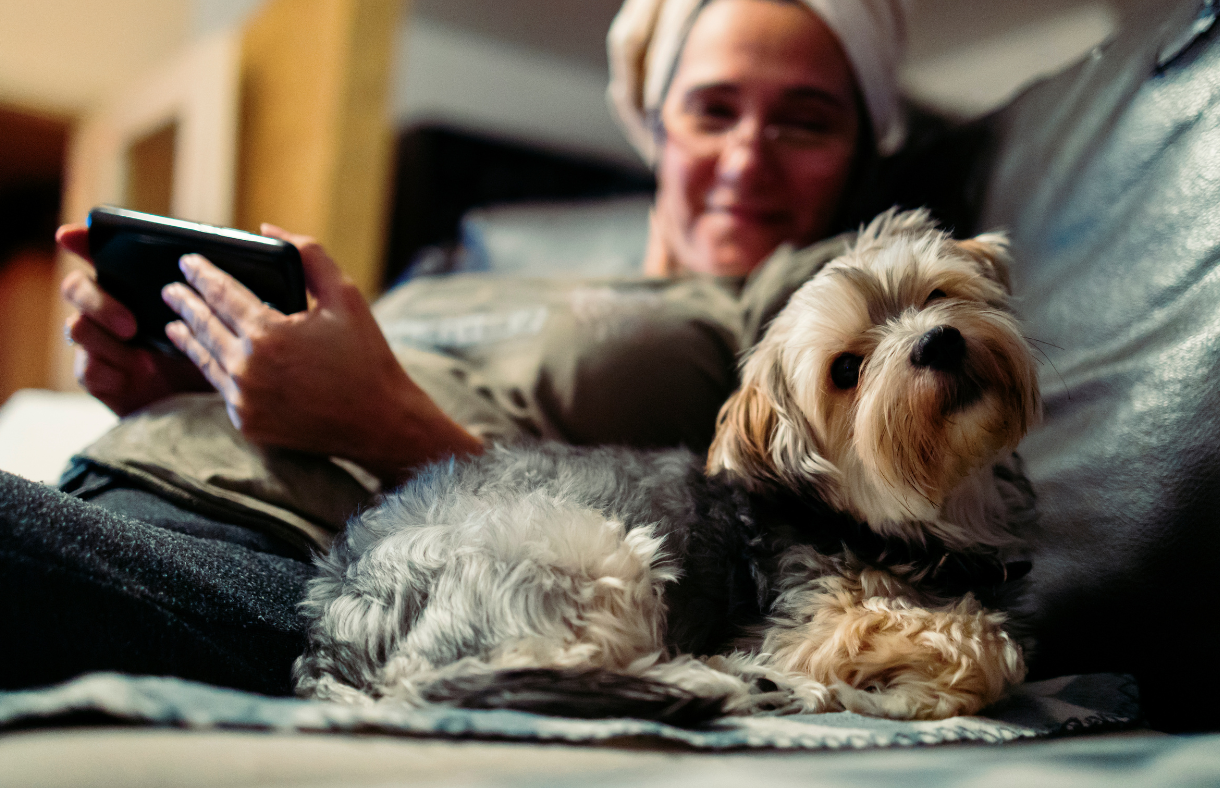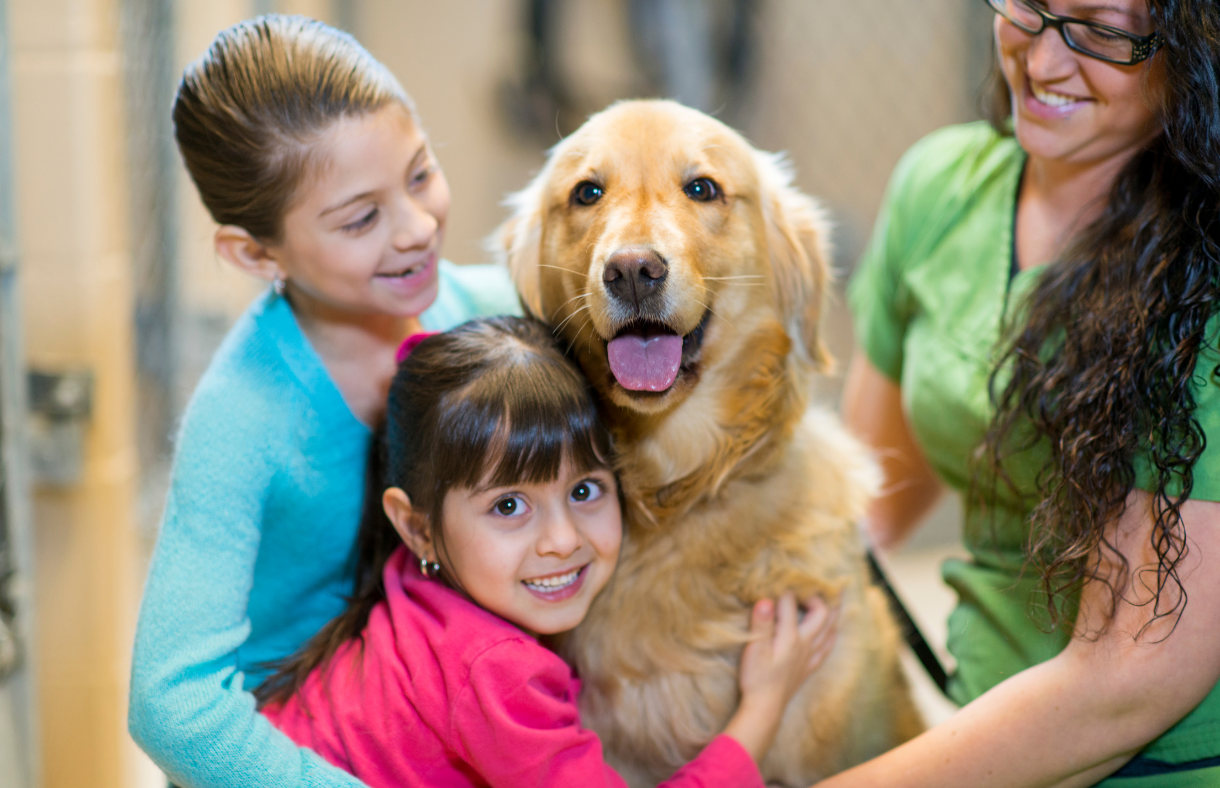Pets are good for your health—unless you’re among those unlucky souls who get rashes and sneezing fits from animals. Cat allergies get the most attention, but for every two people who sneeze at cats there’s at least one who is allergic to dogs—also, many people get symptoms from both. Nor do allergies stop there. While risks vary widely between species and breeds, just about any warm-blooded creature (horse, rabbit, mouse, parrot …) can make someone turn blotchy red, sneeze uncontrollably, or gasp for breath.

Causes
All allergies are due to overprotective immune systems. The system is designed to kill dangerous invasive germs by inflammation and direct attack, while compiling data to defend against the identical invader in the future—and triggering symptoms as a necessary-evil side effect. Allergies happen when an immune system develops a distaste for non-germ substances (like the saliva on a cat’s freshly groomed fur): every time the person is exposed, illness-like symptoms surface as the system attacks the “invader” without being able to destroy it.
While most allergies are more nuisance than danger, some can cause life-threatening anaphylaxis—choking, weakened heartbeat, loss of consciousness. Such severe reactions are thankfully rare with pet allergies. Which may be small comfort to the animal lover who sneezes so violently that few cats dare come near.
But take heart: it is possible to manage allergies and still keep furry friends.
At Time of Diagnosis
- Don’t automatically blame pets for allergy symptoms: the actual trigger may be dust mites, fragrances, or any number of fabrics/foods/chemicals in your home. Before doing anything else, consult an allergist for help pinpointing the culprit.
- If you do test allergic to animals, ask your doctor right off about ways to manage your symptoms and keep your pets. Making that goal clear will help ensure a thorough review of treatment options.
- Take careful stock of your individual sensitivities: they vary considerably from person to person.
- Install the best home air purifiers you can buy, and follow maintenance instructions.
- Remove wall-to-wall carpeting from your home: it traps allergens.
(Note: If someone else in your household is diagnosed, and isn’t personally close to your animal(s), it may take diplomacy to avoid a “that dog goes or I go” impasse. Stay empathetic with your loved one’s problem, and emphasize working together for a solution that satisfies everyone.)

For the Long Term
- Take your allergy medications consistently and according to prescription. If something doesn’t seem to work (or work anymore), never just try to increase its effect by increasing the dose: consult your doctor for advice.
- Many people have multiple allergies. Be doubly diligent about avoiding anything besides animals that affects you.
- Designate “pet-free zones” in your home and bedroom. (If your pets are prone to crying outside closed doors, a secondary caretaker or special toy can help keep them occupied while you’re on break.)
- If your animals have been indoor pets, consider providing them with an enclosed outdoor area to reduce inside-home allergens. (Look up “catio” for tips on making that area escape-proof.)
- Be a neatnik. Wash your hands after petting any animal; keep your home dusted and vacuumed; and have your pets bathed regularly if possible. (If you have one that fights tooth and claw against being “dipped,” consult a professional groomer.)
- Delegate (or hire) someone else to clean up after your pet—or at least wear a face mask and gloves.
- Limit the spread of pet hairs and the allergens they carry. For example, if you have “lap” pets, keep a small blanket handy (preferably near a chair specially reserved for lap sitting) for a quick barrier between the animal and whatever clothes will be worn out of the room.
- Take good care of your overall health, and keep stress to a minimum.
- If you get a new pet, request a trial period before committing to permanent ownership—no matter how much experience you have, allergic reactions can vary even with individuals of the same species.
Can Animal Allergies Be Prevented?
Allergies tend to run in families, so you may well be uneasy if you have allergies and pets—and also want to have kids. Are there ways to improve your children’s chances of being able to enjoy pets without allergic inconvenience?
There’s no foolproof precaution against allergies (which can surface as early as infancy or as late as adulthood), but they do seem to be influenced by environment. The following recommendations may raise your children’s odds for allergy-free living:
- Let them take some risks. Guarding against every tiny bruise and every speck of dirt may only mean that immune systems never get a chance to develop properly. (We all become flabby without exercise.)
- Help them experience a variety of animals, foods, activities, etc., from early on. An immune system that’s never exposed to much of anything may overcompensate by reacting to everything.
- Encourage the kids to spend time outdoors every day. If you don’t have a yard, improvise a play area on the balcony or patio.
- Emphasize the value of physical activity and healthy eating. Set the example in your own habits.
- Give your children regular opportunities to practice self-reliance and learn by trial and error. It builds emotional resilience, which helps physical resilience, which significantly reduces the overall risk of health problems.

The Voice of Experience
We conclude with the testimony of one pet mother who refused to let allergies steal the joys of animal companionship:
Twenty-five years ago, I tested positive for allergies to both dogs and cats—and we had one dog and three cats. Living without them was not an option, so I began receiving allergy shots weekly.
I’ve learned that it’s not an either/or situation, with so many options for treatment. For your pets’ sake and your own, never give up without researching every possible option. My life would not be complete without fur babies: someone to give you unconditional love on your very worst days, someone who understands when you need them the most.
-Kathi L., currently owner of five cats and a golden retriever dog

